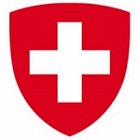Swiss Agency for Development and Cooperation

Funding for projects and research in themes of agriculture and rural development, water management, and climate change and environment
Principal Office: Switzerland
The Swiss Agency for Development and Cooperation (SDC) is Switzerland’s international cooperation agency within the Federal Department of Foreign Affairs. SDC works in partnership with other Swiss federal entities for development coordination, cooperation with Eastern Europe, and humanitarian aid.
Among SDC’s several thematic priorities, those of principal importance for the Terra Viva Grants Directory include rural development and food security; water resources; and climate change and environment.
Grant Programs for Agriculture, Energy, Environment, Natural Resources
1 – Grants and contracts to civil society organizations in Switzerland. SDC makes multi-year contributions to support the programs of 15-20 large Swiss civil society organizations active in the developing world. Grants are typically one to several million Swiss francs (CHF) per year.
Additionally, SDC awards funding through contracted “mandates” to non-governmental organizations (including businesses and consultants) to carry out specific projects and tasks.
[APPLICATION: Program grants are negotiated by each Swiss NGO directly with SDC. Mandates are open to public competition, sometimes including eligibility by non-Swiss organizations and individuals.
Link to SDC’s partnerships and mandates (see “Partnerships and Mandates”)
2 — Research Fund for Global Issues. SDC is a partner with the Swiss National Science Foundation in the newly created Research Fund for Global Issues. This is a new program from 2012 to promote interdisciplinary research for sustainable global development in themes that include agriculture, ecosystems, and others. Projects are based on partnerships of researchers in Switzerland and the developing countries.
APPLICATION: The Fund operates through annual calls for proposals. Each call states one or more theme(s) to be funded.
About the Research Fund for Global Issues, and calls for proposals
3 — Funding of organizations in developing countries. SDC provides support to partner organizations, especially civil society organizations, in some of Switzerland’s priority countries for bilateral development cooperation.
APPLICATION: SDC publishes a directory of its country and regional programs, including contact information for SDC’s outposted staff. Grant seekers inquire for information through these offices.
Link to SDC’s country and regional programs
Geographical Distribution of Grant Activities in Developing Countries
The following countries are priorities for SDC’s bilateral development collaboration, and its cooperation with Eastern Europe and the CIS.
Southeast Asia and Pacific Islands: Cambodia, Laos, Myanmar, Vietnam
East Asia: Mongolia, North Korea
South Asia: Bangladesh, Nepal
Eurasia and Central Asia: Afghanistan, Armenia, Azerbaijan, Georgia, Kyrgystan, Tajikistan, Uzbekistan
Eastern Europe and Russia: Albania, Bosnia and Herzegovina, Moldova, Serbia, Ukraine
Middle East and North Africa: Algeria, Egypt, Iraq, Lebanon, Libya, Jordan, Morocco, Palestinian Territories, Syria, Tunisia, Yemen
Sub-Saharan Africa: Benin, Burkina Faso, Burundi, Central African Republic, Chad, Congo, Djibouti, Eritrea, Ethiopia, Kenya, Mali, Mozambique, Niger, Rwanda, Somalia, South Sudan, Sudan, Tanzania
Latin America and Caribbean: Bolivia, Colombia, Cuba, Haiti, Honduras, Nicaragua
SDC’s website is available in German, French, Italian, English, and Spanish.
In addition to the newly created SDC-SNSF Research Fund for Global Issues, researchers should explore information available through KFPE (i.e., Swiss Research Partnerships with Developing Countries).
SDC posts contact information.
Alliance Sud is the umbrella organization of six large Swiss development NGOs: Swissaid; Catholic Lenten Fund; Bread for All; Helvetas; Caritas; and Interchurch Aid. Each of them engages in programs or projects that focus on one or more themes of agriculture, natural resources, and environment.
April 2021
